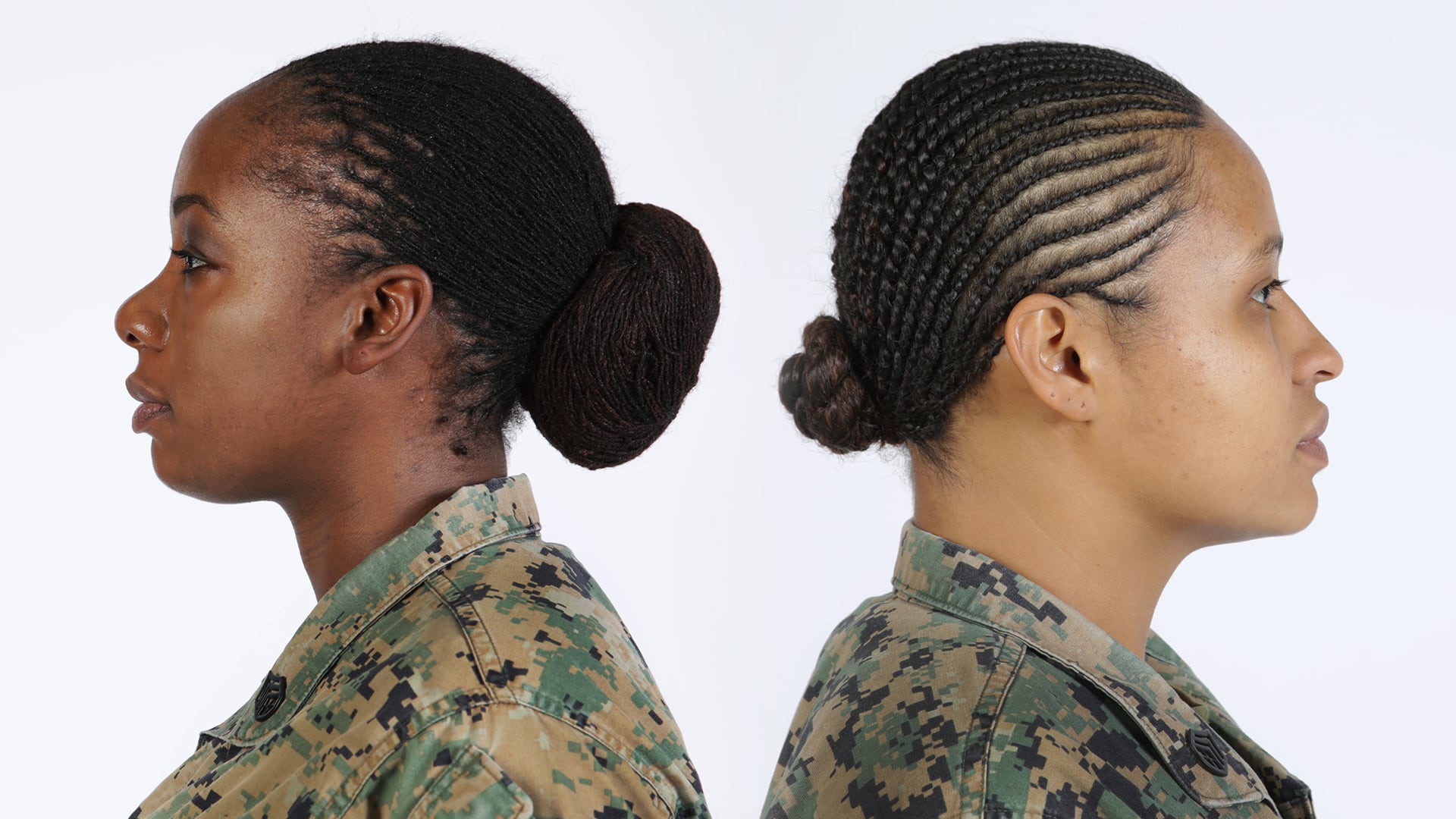The Navy is eradicating “subjective” terms like “outrageous” and “good taste” from its grooming and appearance policies.
While the service has found its standards are not racially biased or discriminatory, the language currently used could be open to misinterpretation and “inconsistent application,” according to a new NAVADMIN. As a result, the Navy said it will remove the following terms from uniform regulations as part of an effort to establish clear guidelines and eliminate conflicting interpretations:
- Faddish
- Good taste
- Eccentric/eccentricities
- Complement the individual
- Complement the skin tone
- Smartness
- Conspicuous/inconspicuous
- Outrageous
The term “professional appearance” will also be revised, while terms like “complementary appearance” and “uniform distraction” will be added and defined. The updated guidance will also implement the term “professional military appearance.”
“Updated uniform policy changes are forthcoming and will focus on simplifying grooming and appearance policies to alleviate misinterpretation and facilitate equal and ready compliance and enforcement,” the NAVADMIN said.
RELATED

The language changes stem from a review of unifform regulations by the Navy Uniform Matters Office, which examined racial bias and responses from sailors during focus groups in 2020 and 2021.
Vice Adm. John Nowell Jr., the Navy’s chief of personnel, signaled that language updates would emerge following the release of Task Force One Navy’s initial report in February. The task force, which was stood up in June 2020 after the death of George Floyd at the handsof police in Minneapolis, aimed to address systemic racism within the service, evaluate racial disparities in the military justice system, and examine the fairness of the promotion and advancement process to eliminate “destructive biases.”
The report ultimately offered more than 50 recommendations after completing nearly 300 listening sessions with active-duty and Reserve sailors, along with almost 1,000 online surveys.
“Overall, with grooming standards, we found that there were none that were discriminatory,” Nowell told reporters in February. “But the way that some were written, it was too subjective, as a commanding officer looked at the interpretation and carrying out what those regulations were.”
Specifically, Nowell pointed to regulations about hair color complementing skin tone. Such language led some commanding officers to believe that meant Black women could not have blond hair, he said.
“That’s what some of the COs were interpreting,” Nowell said. “So, we tightened that language up.”
Task Force One Navy has been merged into the Navy’s Culture of Excellence campaign that aims to facilitate transparency, inclusion and accountability.
The most recent verbiage update for uniform policies applies to sailors of all ranks, and marks the first of several forthcoming uniform policy changes, the Navy said.




